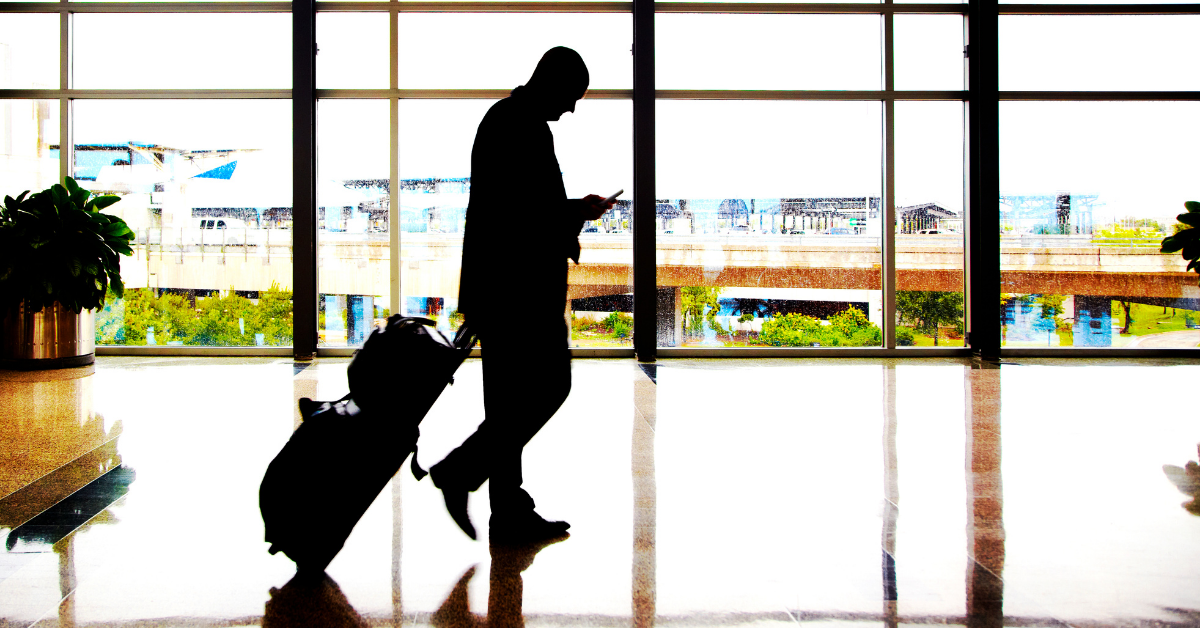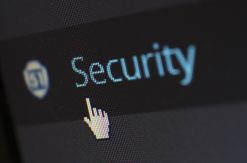Cyber Security While Traveling
In a world where everyone is constantly connected, cybersecurity cannot be limited to the home or office. When traveling—whether domestic or international—it is important to practice safe online behavior and take proactive measures to secure Internet-enabled devices. The more you travel, the more you are at risk for cyberattacks. The more vulnerable your cyber security profile becomes, the more your physical risk increases as well. You need to be cyber smart and use these tips to connect with confidence while on the go.
Security Measures to Take Before Travel
- Everything connected must be protected. Whether it’s your computer, smartphone, game device, or other network devices, the best defense against viruses and malware is to update to the latest security software, web browser, and operating systems. Sign up for automatic updates if you can, and protect your devices with anti-virus software.
- Perform a full backup. Back up your contacts, financial data, photos, videos, and other mobile device data to another device or cloud service in case your device is compromised, and you have to reset it to factory settings.
- Update all your software. Keep your software updated to the latest version available. Maintain your security settings to keeping your information safe by turning on automatic updates so you don’t have to think about it, and set your security software to run regular updates.
- Setup your device screens to lock. Lock your device when you are not using it. Even if you only step away for a few minutes, that is enough time for someone to steal or misuse your information. Set your devices to lock after a short time and use strong PINs and passwords.
- Setup strong authentication. Enable multi-factor authentication (MFA) to ensure that the only person who has access to your account is you. Use it for email, banking, social media, and any other service that requires logging in. If MFA is an option, enable it by using a trusted mobile device, such as your smartphone, an authenticator app, or a secure token—a small physical device that can hook onto your key ring. Read the Multi-Factor Authentication (MFA) How-to-Guide for more information.
Cyber Security During Travel
- Disable auto connections. Some devices will automatically seek and connect to available wireless networks or Bluetooth devices. This instant connection opens the door for cyber criminals to remotely access your devices. Disable these features so that you actively choose when to connect to a safe network.
- Stay protected while connected. Before you connect to any public wireless hotspot—such as at an airport, hotel, or café—be sure to confirm the name of the network and exact login procedures with appropriate staff to ensure that the network is legitimate. If you do use an unsecured public access point, practice good Internet hygiene by avoiding sensitive activities (e.g., banking) that require passwords or credit cards. Choose your personal hotspot over a free access point. It is often a safer alternative to free Wi-Fi. Only use sites that begin with “https://” when online shopping or banking.
- Assume you are being targeted. Cyber criminals use phishing tactics, hoping to fool their victims. If you’re unsure who an email is from—even if the details appear accurate—or if the email looks “phishy,” do not respond and do not click on any links or attachments found in that email. When available use the “junk” or “block” option to no longer receive messages from a particular sender.
- Reduce your public digital footprint. Limit what information you post on social media—from personal addresses to where you like to grab coffee. What many people don’t realize is that these seemingly random details are all that criminals need to know to target you, your loved ones, and your physical belongings—online and in the real world. Keep Social Security numbers, account numbers, and passwords private, as well as specific information about yourself, such as your full name, address, birthday, and even vacation Disable location services that allow anyone to see where you are—and where you aren’t— at any given time.
- Guard your mobile device. To prevent theft and unauthorized access or loss of sensitive information, never leave your equipment—including any USB or external storage devices—unattended in a public. Keep your devices secured in taxis, at airports, on airplanes, and in your hotel room.



